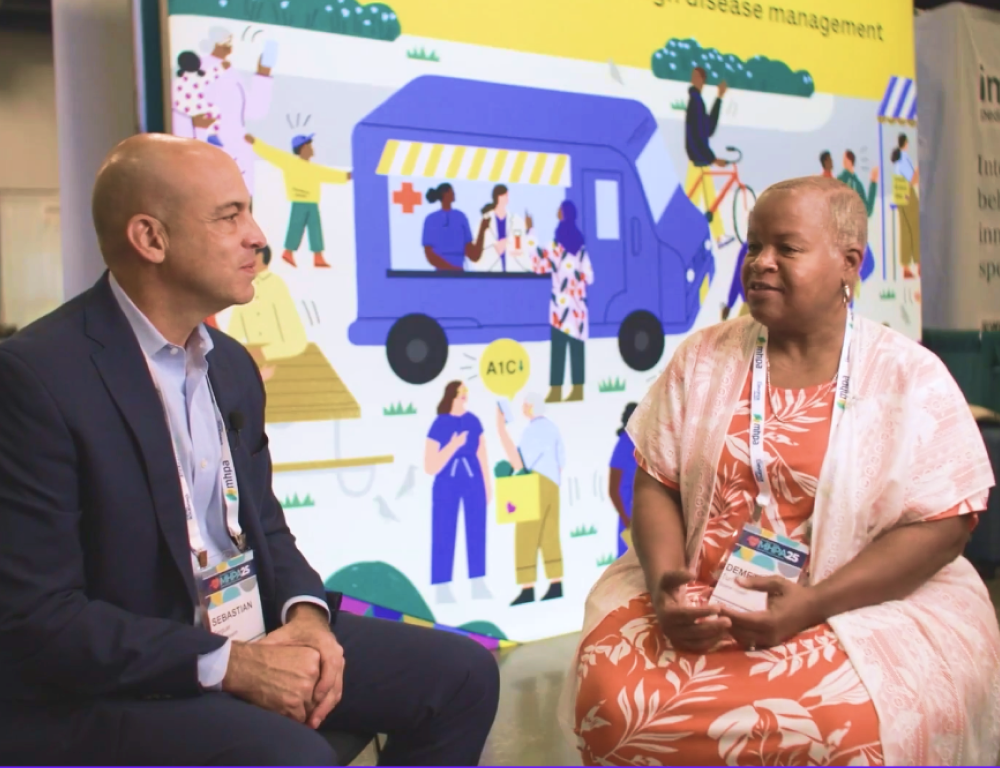Medication Support Beyond the Doctor's Office: The Power of Additional Touchpoints in Promoting Medication Adherence

In today's healthcare landscape, patients often turn to their doctors for medication-related questions and support. Unfortunately, many lack the support they need because their providers are overburdened by a high patient load, endless paperwork, and long hours. An increasing emphasis on quantity over quality within the healthcare system further limits the amount of facetime patients have with their doctors, making it challenging to receive the help they need to improve their medication adherence. Additionally, average appointment times are often unsatisfactory for patients, typically only eighteen minutes long. This leaves little time for patients to self-report all their adherence concerns and compromises the effectiveness of their medication regimens.
This lack of medication support contributes to glaring rates of medication nonadherence and results in the proliferation of adverse medical events. A recently-conducted survey of low-income patients across the country found that 57.4% of medication-taking respondents experienced an adverse event due to a medication error, with 20% visiting urgent care or an emergency department.
{{guide-middle}}
The medication support gap
In clinical settings, patients often receive attentive treatment and unrivaled access to healthcare professionals made possible through Directly Observed Therapy (DOT). Once patients are discharged, however, they are often left with complicated instructions with minimal and intermittent support.
Still, patients require ongoing guidance to ensure they understand their treatment plans and can follow them consistently, especially if they have chronic conditions requiring multiple medications, as did 65.8% of the respondents in the survey. Relying on providers as the sole source of patient medication support doesn’t work. Not only are providers unable to provide the required level of medication engagement, but the survey also revealed that only 24.7% of patients reported medication errors to their providers, suggesting that most doctors don’t have an accurate picture of their patients’ health experiences.
Patients want more support
Surprisingly, patients are eager to connect with their providers for medication help. In one section of the survey, respondents were asked to rank resources they found most helpful for support in taking their medications: the assistance of a healthcare professional in answering questions was the top choice, with 47.2% of patients favoring it to other options, followed by daily care check-ins and medication reviews with providers at 35.6% and 26%, respectively.
This insight is supported by the survey finding that 52.6% of respondents turn to their doctor for medication-related questions, even over the convenience of the Internet, the second-most utilized resource selected by 21% of the respondents.
But despite healthcare providers' favor with patients in this area, the reality is that most treatment plans go unexplained, as do the possible side effects of medications or the consequences of nonadherence. When clarifications and provider trust and rapport are missing, even simple medication instructions can become overwhelming for patients. Structured medication regimens can devolve into missed doses, premature discontinuations, and critical mistakes in the self-management of care.
Our approach to solving the medication support gap: additional touchpoints
Our answer to the medication support gap is the implementation of additional touchpoints and support systems that provide the medication engagement that patients need.
To do this, we extend provider engagement by acting as an extension of a health plan or system's care team. We provide the tools necessary to establish daily touchpoints and extend patient support anytime and anywhere. This is achieved by scaling and enhancing DOT with video technology delivered through an easy-to-use, patient-friendly mobile app. Our program allows patients to connect with healthcare professionals for medication support outside of traditional doctor's appointments, equipping patients with the resources they need to understand their medication regimen and overcome any barriers to adherence they may face.
The most consequential benefit of this approach lies in the unprecedented level of personalized engagement. Our care team provides multifaceted support that uplifts patients, offering guidance and accountability through daily check-ins and reviews. Our care team of pharmacists, nurses, and health coaches actively encourages patients to keep regular primary care and specialist appointments, monitor clinical outcomes, encourage self-reporting, enable linkages to health plan resources, and provides condition-specific and overall health education and resources. Further, our care team advocates for the health and well-being of every single patient in their care. Their presence humanizes the treatment process and empowers individuals to take control of their health while reminding them that they don’t have to go it alone: helping hands are always there if and when needed.
Our utility goes beyond adding more touchpoints. Care quality can only improve when the data fragmented across the patient journey is unified. At every point of engagement through our platform, patients provide critical information about their adherence, medication challenges, and personal circumstances. We share this indispensable patient data with providers and health plans, enabling the development of more effective treatment plans founded on a comprehensive understanding of the patient experience.
Revolutionizing patient-provider communication
Recognizing the limitations of the current healthcare system, innovative ways of addressing the medication support gap are essential. Our comprehensive medication engagement program relieves the burden of medication support for providers and health plans while keeping them in the fold. When supported through our holistic medication engagement program, patients are more adherent to their medications, leading to better clinical outcomes and improved overall health and well-being.




Download the Insights into Medication Challenges in Populations with Low Incomes: The Scene Medication Survey

Download the Insights into Medication Challenges in Populations with Low Incomes: The Scene Medication Survey






.png)
